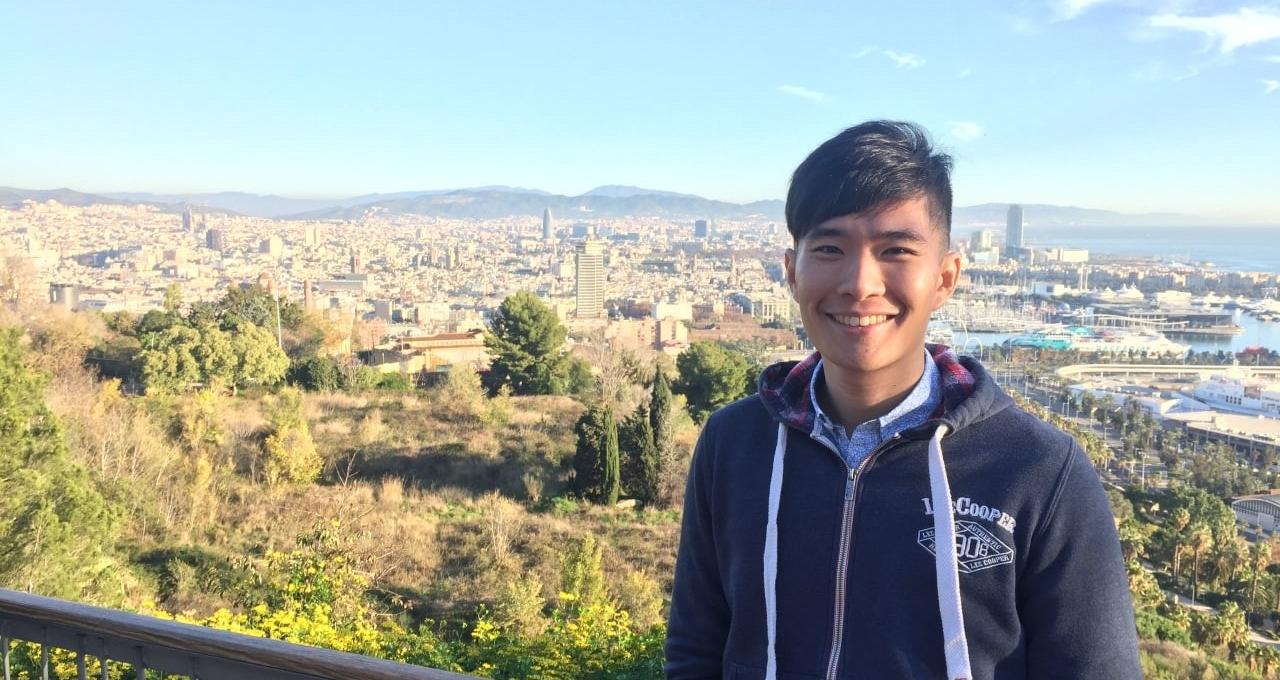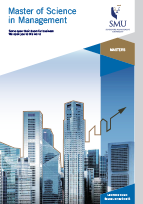
The term kaypoh — which colloquially describes one who meddles and adapted from the Hokkien dialect phrase for “nosy old lady” — is usually imbued with derogatory connotations. But Ben Ho, a recent graduate from SMU’s Master of Science in Management (MiM) programme, has no qualms about bestowing that very epithet upon himself, by way of explaining his move from a high-flying job in the ministry to becoming a journalist. And perhaps the description is apt, given his innate sense of curiosity and appetite for learning.
“Taking up a Master’s is my way of adapting to new paradigms as a manager in my company,” says Ben, who is currently an editor for multinational news channel CNA.
“Covid-19 showed that those who aren’t nimble or possess an open mindset to learn new things, simply wither away.”
From a First-Class Honours Degree in Political Science to a career in the Civil Service, followed by several years in journalism for Singapore’s largest content creator and national media network, Mediacorp – Ben Ho has forged forward in his career like a dynamo. Nevertheless, the humble journey of self-improvement has been an ongoing process of constant learning for Ben.
In fact, having gained invaluable experience as a Senior Assistant Director at the Ministry of Trade and Industry, during which he took part in overseas negotiations at the World Trade Organisation and the United Nations, Ben took the very brave step of resigning from the Civil Service.
“I wanted to get out of the civil service and learn something new before I became what people would call a ‘lifer’ – a career civil servant with no option but to stay for life,” recalls Ben candidly, who worked at the ministry for five years.
“Being a natural kaypoh who craves adrenaline, working in a national media network is a great fit. Every day is a new day, with new news, action, light, sound, picture, people, rushing, more rushing, rinse, repeat and then a finished product that goes out on air – it is very gratifying indeed.
A career in news journalism is uniquely multifaceted. News stories appear on our televisions, radios and on the internet in mere seconds, but behind that lies an enormous well-oiled network of editors and reporters working tirelessly.
The impetus for Ben enrolling in the MiM programme was the view that a solid foundation in business, financial and managerial knowledge would serve him well at CNA. After all, the programme is designed for individuals with no prior business experience to grasp the inner workings in the world of business, with a curriculum laser-focused on the latest trends in business management
“In my line of work, we talk to a gamut of analysts, consultants, CEOs, C-suite leaders and start-up founders in different sectors – from SMEs to big-tech companies, almost daily,” shares Ben.
“If I don’t know what I don’t know, how can I ask pertinent questions or write great stories? And what better way to learn about management than from the Singapore Management University?”
These days, Ben resonates better with stakeholders by leveraging his understanding of business fundamentals — from types of pricing strategy to the bullwhip effect or an “easy” monetary policy, which in turn opens up the door to deeper conversations, which helps him strengthen his knowledge base.
Reluctant also to lose out on an income, Ben was fortunate to be able to juggle his very hands-on journalism role with the MiM programme. The blended modality of the course allowed for online and offline work over an 18-month period, thereby allowing him to keep working full time at CNA (which included managing a team of over 20 reporters), alongside keeping up with his studies at his own pace.
Besides developing skills for a changing business world, Ben also picked up other essential competencies — including the use of digital tools. Even before the onset of Covid-19, the MiM programme had adopted a blended learning model, whereby an online learning experience is fused with in-person campus interaction with peers and faculty. The model provided an opportunity to master the use of platforms such as Zoom and Teams, which were new to Ben.
Despite this blended approach to teaching, the human touch was never missing. Ben recalls his time as a young undergraduate when students merely had to attend lessons in person on campus every week, but he left everything he learnt behind in the lecture theatre the minute it ended. Things are different now.
“So long as you are connected, SMU is there, your professors are there, and, so are the looming assignment deadlines,” Ben shares.
“In reality, the fact that we don’t always see each other in a ‘physical’ format means we cherish the times communicating with each other even more. Now I have plenty of MiM group chats that started off as ‘project’ teams and have since morphed into groups filled with the latest gossip, rants about work, laughter, jokes and quirky recommendations for good food.”
With fellow classmates hailing from China, the Philippines, Indonesia and India, a diversity of perspectives and experiences among students was common. Each student’s professional and cultural background was also incredibly diverse, as Ben shares a seminar room with an operations engineer, maritime worker, a tuition centre owner, a bank relationships manager, and even an interior designer, and refers to his classmates as a “diverse motley crew”, who brought with them “such a wealth of experience that is priceless and unmatched” as compared to his undergraduate experience.
These friendships withstood the stresses and pressures of the programme and facilitated the cohort’s closeness. There were instances where the students stayed up late, typing on a Teams Document and chatting on Zoom at the same time to give a group assignment a final push, or gathered for group study sessions online and sent one another words of encouragement when they were frazzled and about to give up
“I would be lying if I said that it was easy,” adds Ben. “At the end of the day, perhaps what kept me going was the fact that I enjoy learning new things alongside brilliant and driven classmates, no matter how hard it might have been at times.”
Speak to our Admissions Advisors
Lee Kong Chian School of Business
Postgraduate Admissions
Graduate Programmes Office
50 Stamford Rd, Singapore 178899
Tel: +65 6828 0882
Join us at the upcoming events
Ofukacho, 1−1 ヨドバシ梅田タワ
Osaka, Kita Ward, 〒530-0011, Japan
Kyobashi, 1 Chome−3−5 三井ガーデンホテル 1F
Chuo City, Tokyo, 〒104-0031, Japan
